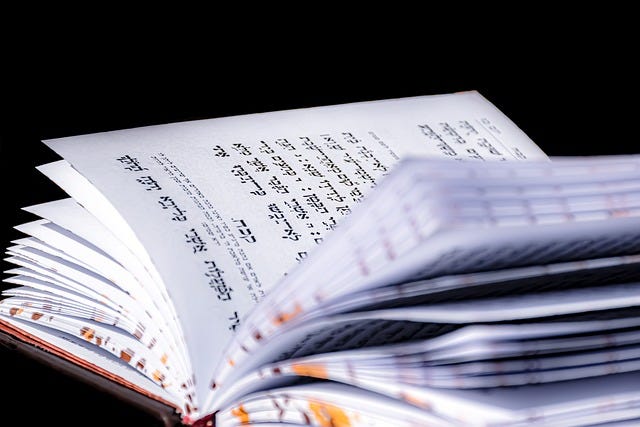Keeping Track of an Ever-Changing Siddur
What lies behind some relatively recent additions to our davening
Over the years, I’ve written a great deal about the torrent of halachic innovation sparked by the Ari’s revolutionary 16th Century interpretations of kabbalistic literature. The image of Orthodoxy as a conservative, tradition-bound society struggling to resist change is difficult to square with reality.
But whenever I imagine I’ve got it all figured out, a few even more obvious examples show up.
Consider the custom to say מזמור שיר חנוכת הבית before פסוקי דזמרא. What could be less controversial than saying a chapter of Tehilim each morning? Well did you know that this, too, is rooted in modern kabbalistic theology and almost certainly dates back no more than five centuries? And did you know that, according to the Ari, reciting the first verse (the way it’s printed in siddurim) is a distraction from the custom’s deeply theurgic goals and should be skipped?
Based on Sha’ar Hakevanot (ענין תפלת השחר), you should recite the chapter in order to somehow marshal powers connected to the ten martyrs to force the elevation of trapped sparks. This, it’s claimed, will stabilize and/or enhance the cosmos and repair the damage that God somehow incorporated into His creation of the world.
Full disclosure: I have no clue what all that might mean. But I do know that, as a non-kabbalist and a Hirschian, it’s not something with which I should be engaging. After all, according to R’ Hirsch, traditional prayer is the humble acknowledgment that we’re helpless without God’s help and that we seek to absorb the wisdom found in the siddur to inspire greater loyalty and service. But it’s not an exercise in cosmic renovation and theurgy.
So why should I recite מזמור שיר חנוכת הבית?
While I haven’t recited it daily before פסוקי דזמרא for years, based on the Tur, I most definitely do try to say it after davening during חנוכה.
I also recently discovered that the custom to recite the Thirteen Attributes (Shemos 34:6) three times before reading from the Torah on Yom Tov is also of a recent vintage. The earliest source of which I’m aware is the Birchei Yosef (או"ח סי' תפח ס"ה) who quotes the Ari in Seder Tefila.
I’m not sure exactly why the Ari and his followers added this practice, but I think I’m safe assuming it’s similarly theurgic in nature. Although, curiously, most opposition to this custom comes from kabbalists.
(The custom to recite the verse on a fast day is, by contrast, quite old. It’s mentioned approvingly in the Machzor Vitry (245).)


